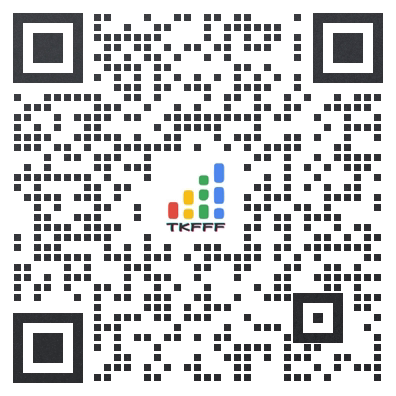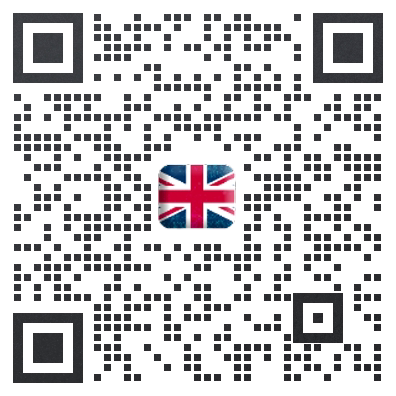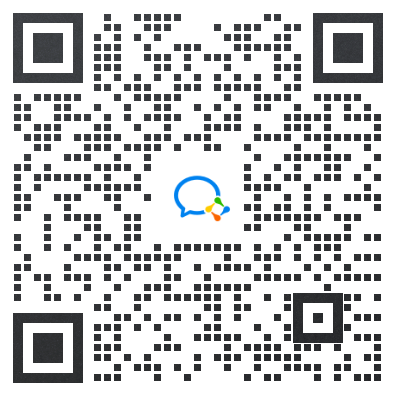Zoe Thomas: Welcome to Tech News Briefing. It’s Tuesday, May 28th. I’m Zoe Thomas for the Wall Street Journal. What do comedy clubs, concerts, and schools have in common? They all want people in attendance to stay off their phones, but getting people to put their phone away is not easy. Enter Yondr, maker of little bags for locking up phones. We’ll find out how users feel about these little pouches. Plus, interested in buying a social media platform? Billionaire Frank McCourt is. He sat down with our senior personal tech columnist, Joanna Stern at the WSJ’s Future of Everything Festival to discuss the bid for TikTok he’s organizing and his vision for the future of the internet. We’ll have highlights from their conversation. First, though most of us find it pretty hard to put down our phones even when we’re at live events. The company Yondr has a solution for that. When guests arrive at a show, Yondr workers or venue personnel ask them to silence their phones and place them in Yondr pouches. A clasp keeps the pouch shut unless guests go to a designated cell phone use area to have their bag magnetically unlocked. About 6 million people locked their phones in Yondr pouches at live shows in 2022. This year, the number of users is expected to surpass 10 million. Cordilia James reported on the use of Yondr’s bags and the company’s growth, and she’s with us now. Cordilia, these bags are used at different types of live events, but why do comedians in particular say they’re using Yondr bags at their shows?
Cordilia James: So comedians especially have something at stake here if you’re always on your phone at their shows. So comedians, if they’re performing, they don’t necessarily want you to go online and post their set in case maybe someone else decides to steal some of their jokes or maybe they’re testing out something and they’re not sure how it’s going to land. You don’t want a joke that bombs to go viral essentially.
Zoe Thomas: How do event goers feel about the use of Yondr’s bags?
Cordilia James: There are some mixed reactions here. Some attendees have said that they also miss those days where people could be in the moment. I spoke to someone who said that he’s more comfortable when people might pull out their phone and snap like a photo or two, but then put their phones away so that they can really share that moment together. Some people feel really wary about these pouches though. I spoke to someone who was really nervous because of health concerns, not being able to access the phone in case of emergencies, at least immediately on your person. However, Yondr does have phone use areas where you can still get your pouch unlocked during the show. It’s just not where the live event is happening, so it might just be somewhere else in the venue.
Zoe Thomas: What’s the cost of using these bags?
Cordilia James: The prices vary. When it comes to using these pouches in schools, a school might pay $30 per student to enroll in the Yondr program that allows them to use these bags. But then for venues and artists, they paid to rent the service. So Yondr actually did not disclose how much artists might pay specifically to rent the service because usually what happens is they’re paying for not only the pouches, but also Yondr staff to actually help with unlocking and locking these pouches at events. Prices can vary depending on the capacity of the venue and just other factors like that.
Zoe Thomas: Let’s talk about Yondr bags in schools. Some schools are banning phones to try and prevent kids from getting distracted. How big of a business segment is this for Yondr?
Cordilia James: If we look back on 2023, about 40% of Yondr’s revenue came from schools, and now the company is expecting that to reach roughly 70% of their business by student this year.
Zoe Thomas: So how many students are we talking about?
Cordilia James: By last fall, more than 1 million students were using Yondr pouches across 21 countries, and Yondr, while it is the biggest player in this space, there are some others that are offering similar pouches that are being used at schools across the globe. There’s this company called Phone Locker that was founded in Australia in 2020, and Australia banned mobile devices in public schools late last year. And after speaking to them, they’re also noticing an uptick in terms of how many pouches that they’re able to provide schools, both in Australia and in some of the eight other countries that they serve, though it should be noted that they do not provide service within the US.
Zoe Thomas: That was Cordilia James with our personal tech team. Coming up, we’ll find out what an alternative architecture for the internet could look like and why one billionaire says buying TikTok in the US could be a catalyst for it. That’s after the break. The US government passed a law last month requiring a sale or ban of the popular social media app TikTok, which is owned by Chinese parent company ByteDance. ByteDance is challenging the law in court, but potential buyers are already stepping up to purchase TikTok in the US. One of them is real estate mogul and former Los Angeles Dodgers owner, Frank McCourt. He’s organizing a bid through his nonprofit, Project Liberty. McCourt discussed his plans for the platform and why he wants to make the offer with our senior personal tech columnist, Joanna Stern. The two spoke at The Future of Everything Festival last week. Here are highlights from their conversation.
Joanna Stern: Frank, thank you so much for joining us here.
Frank McCourt: You’re welcome. Nice to be with you.
Joanna Stern: So you’ve announced a bid to acquire TikTok. I want to ask the audience real quick. If you guys had a billion dollars, would you buy a social media company? Why do you want to buy a social media company and specifically TikTok?
Frank McCourt: I’m making the bid on behalf of something called Project Liberty, which is much more than just me. This is a movement of people who basically want to reclaim their personhood. We call it data, which is kind of a abstract term. But data in this day and age is us, and Project Liberty has really gathered up an array of stakeholders that have said, “Enough is enough in terms of the way the internet is currently architected, and let’s create an alternative architecture, an alternative to the current internet that people can migrate to, where we’re prioritized.” So we regain control of our identity, regain control of our data, and we have an internet that’s based on using our information with our permission, and it’s a different way of thinking about how the internet operates. We’ve built the technology. It’s an open source protocol, a project that I green-lit in December of 2019. There are now nearly a million people using the protocol. So the issue of the tech working is now behind us. We can check that box off. The next challenge is scale, and TikTok is a fantastic opportunity to actually catalyze this new internet because 170 million people creates scale, and we have an alternative to the mess we’re in.
Joanna Stern: How much money are you putting together to buy TikTok?
Frank McCourt: No one knows what the price tag’s going to be. There’s several innings to be played out here. ByteDance is fighting this, so there’s litigation that needs to be sorted. Our bet is that the US government will win and ByteDance will either have to sell or shut down the platform. At that point, they’ll have to make a decision. Our bet is they’ll sell, not shut it down. There’s a lot of capital other than Chinese capital invested in TikTok that I think will make a lot of noise about not losing all that value. When they sell, they’re not going to sell the algorithm. That’s something we all know and have heard. We’re not interested in their algorithm because we’re talking about migrating users to a different design.
Joanna Stern: Have you talked to ByteDance about this?
Frank McCourt: No. No, I haven’t.
Joanna Stern: But you’ve talked to some US officials about this?
Frank McCourt: Many, yeah. So we have a lot of support on both sides of the aisle for what we’re doing.
Joanna Stern: Okay. Let’s say ByteDance bites, and they say, “All right, Frank, we’re going to give you TikTok, but no algorithm. No algorithm.” How does that product look and feel to the 170 million TikTok users in the US?
Frank McCourt: People love TikTok and we don’t want to see TikTok actually shut down. We’d actually like to see it continue but with a different architecture. As a user, you’re still going to be able to have the, generally speaking, the experience you have now. But what will be different is you won’t have some black box algorithm that is manipulating you. There’ll be algorithms, but there’ll be transparency in the algorithms. You’ll know what’s happening, which of your data is being used. It will be an internet where the actors will be identifiable. So you won’t have people, adults pretending they’re kids to prey on kids. You’ll have verifiable individuals. By the way, identity, the lack of identity in the internet we have right now is a massive flaw. We have 3 billion people connected, and you don’t even have to be a person. I can pretend I’m you, machine bots, et cetera, et cetera. We need to bring coherence back.
Joanna Stern: How do you do that? How does your protocol do that, ensure that Frank McCourt is Frank McCourt on TikTok?
Frank McCourt: Yeah. There’s technology available now that wasn’t available 20 years ago. To be able to verify that I’m a human being, we can have third party verification. There’s technology available now to establish provenance, that something is an original piece of work, an original video, an original article in the Wall Street Journal. Your product can be connected to you. So whereas we have an internet now that disregards all that, so let’s rethink how it works. The user experience will be fun and great and so forth, but you’ll be able to curate what you see, more pet videos, less sports, more sports, fewer pet videos, and your data won’t be taken from you, brought to places that you haven’t agreed for it to go or be repurposed.
Joanna Stern: Thank you so much, Frank.
Frank McCourt: Thanks, Joanna.
Joanna Stern: Thank you everybody.
Frank McCourt: Thanks very much. Thank you.
Zoe Thomas: That was our senior personal tech columnist, Joanna Stern, speaking with Project Liberty’s Frank McCourt. And that’s it for Tech News Briefing. Today’s show was produced by Julie Chang with supervising producer Melony Roy. I’m Zoe Thomas with the Wall Street Journal. We’ll be back this afternoon with TNB Tech Minute. Thanks for listening.
文章来源:


TKFFF公众号
扫码关注领【TK运营地图】

TKFFF合作,请扫码联系!







 闽公网安备35021102002035号
闽公网安备35021102002035号